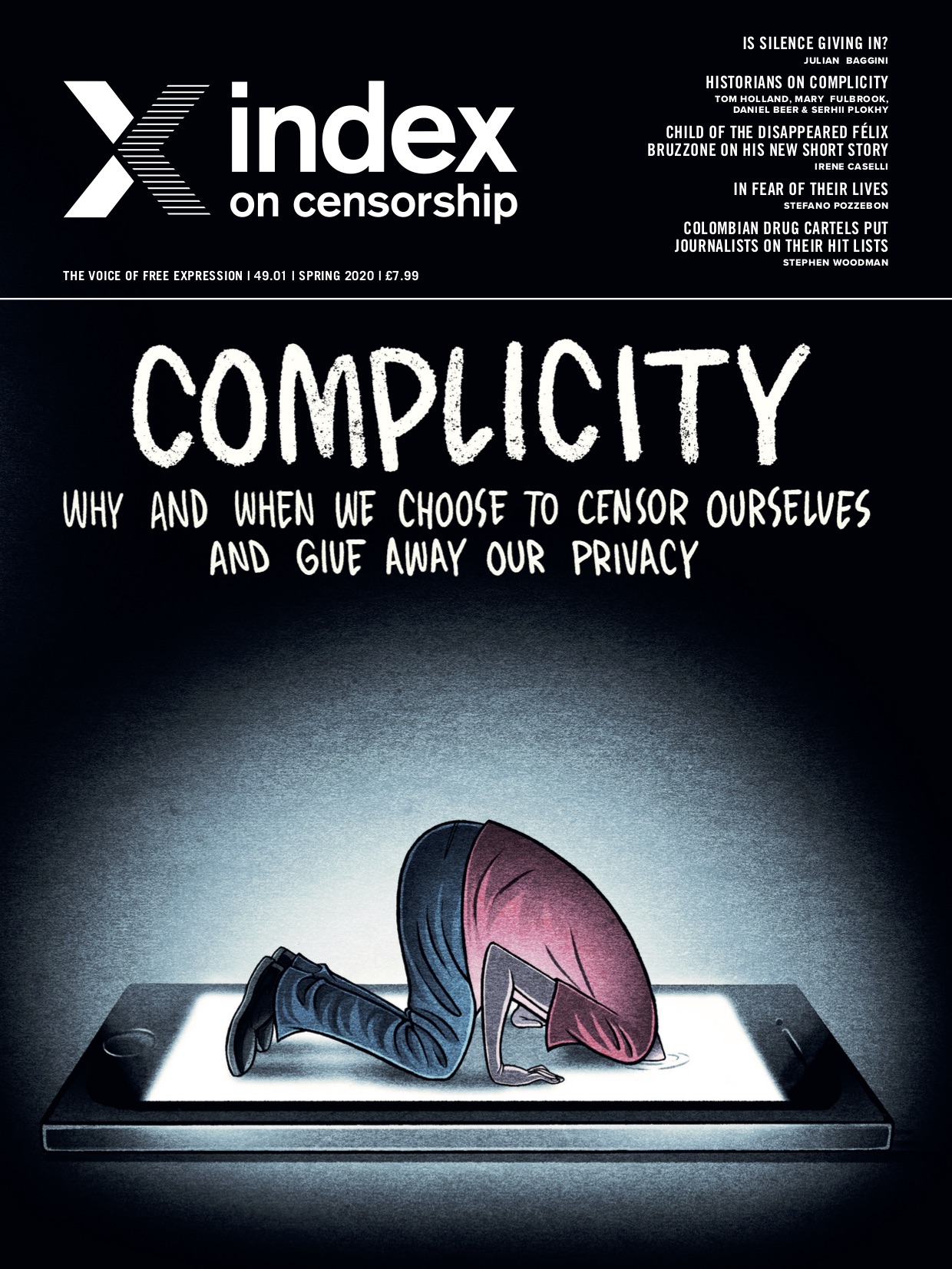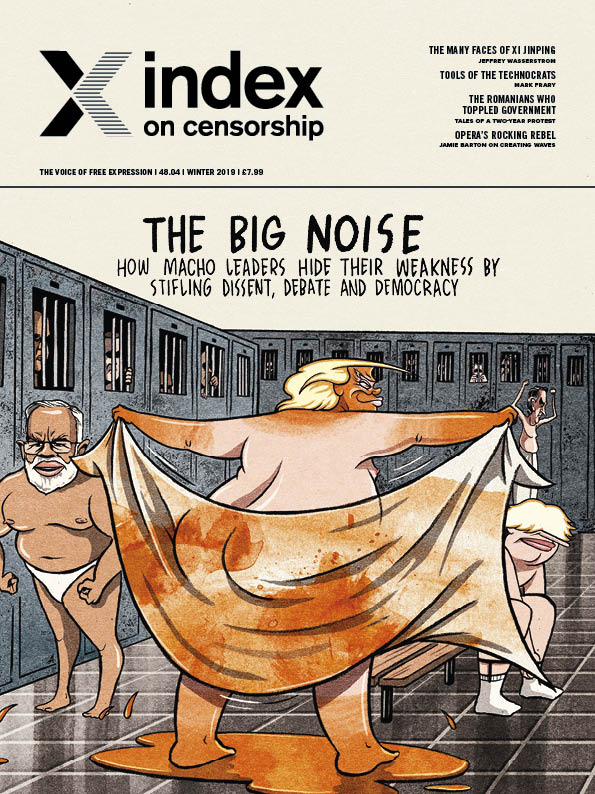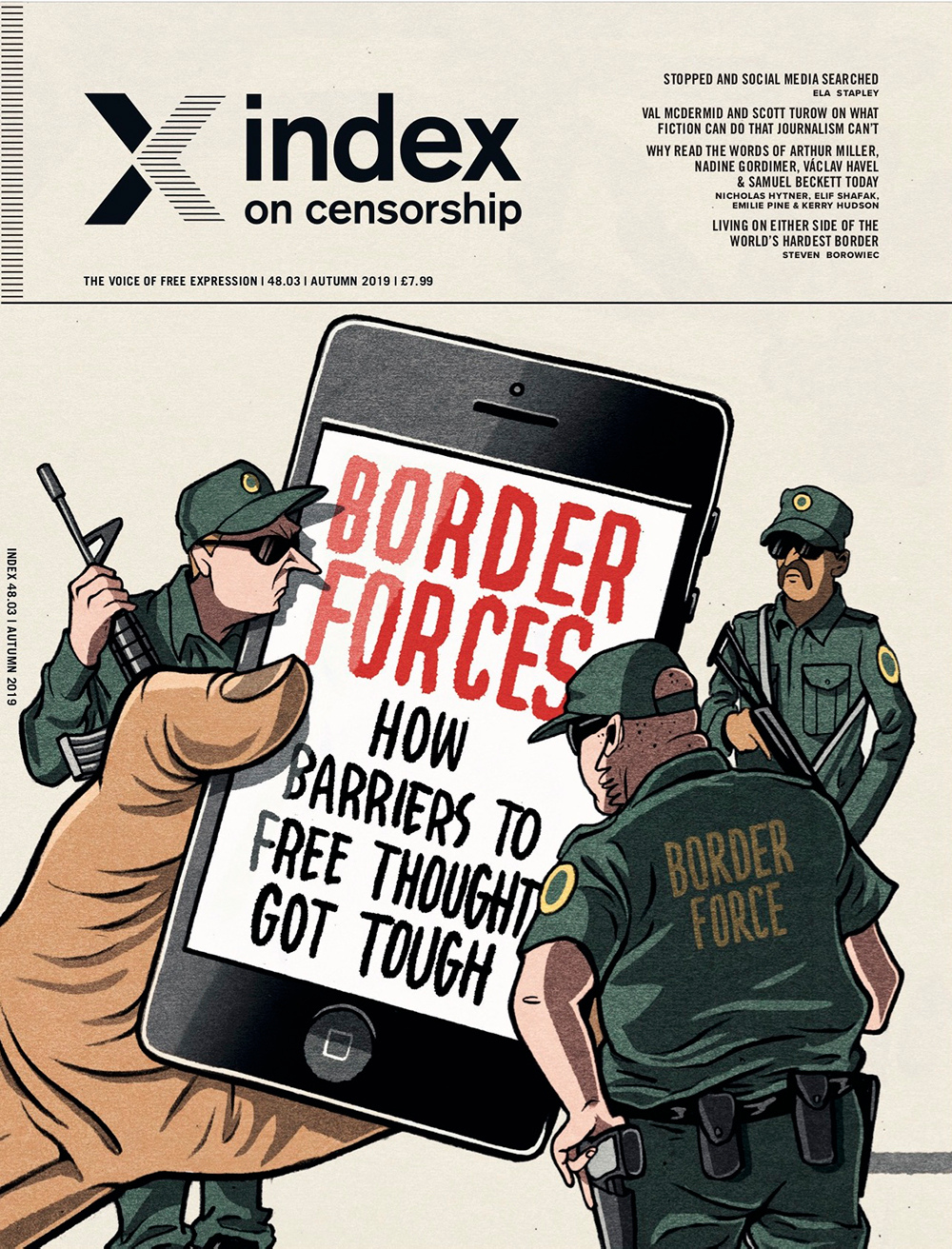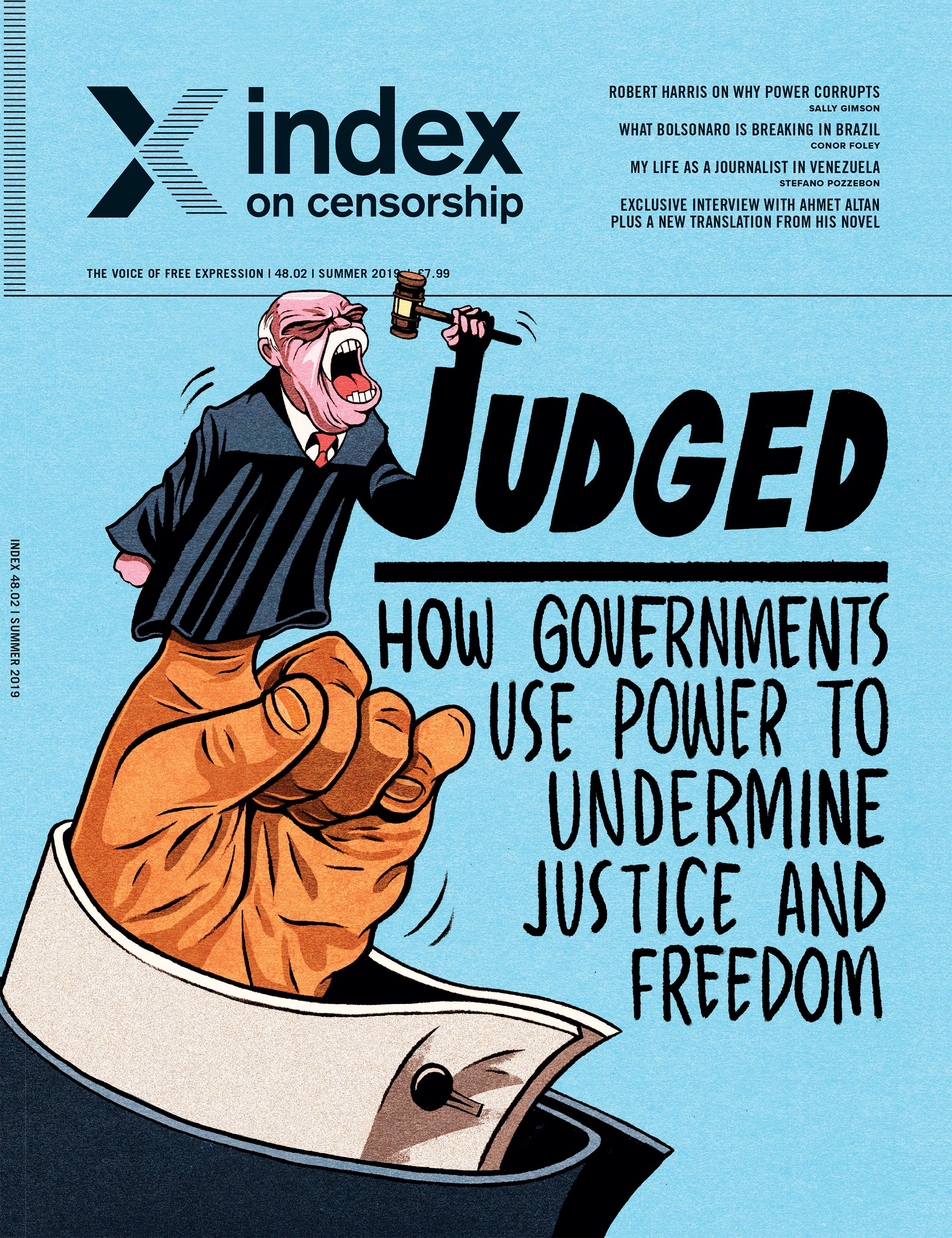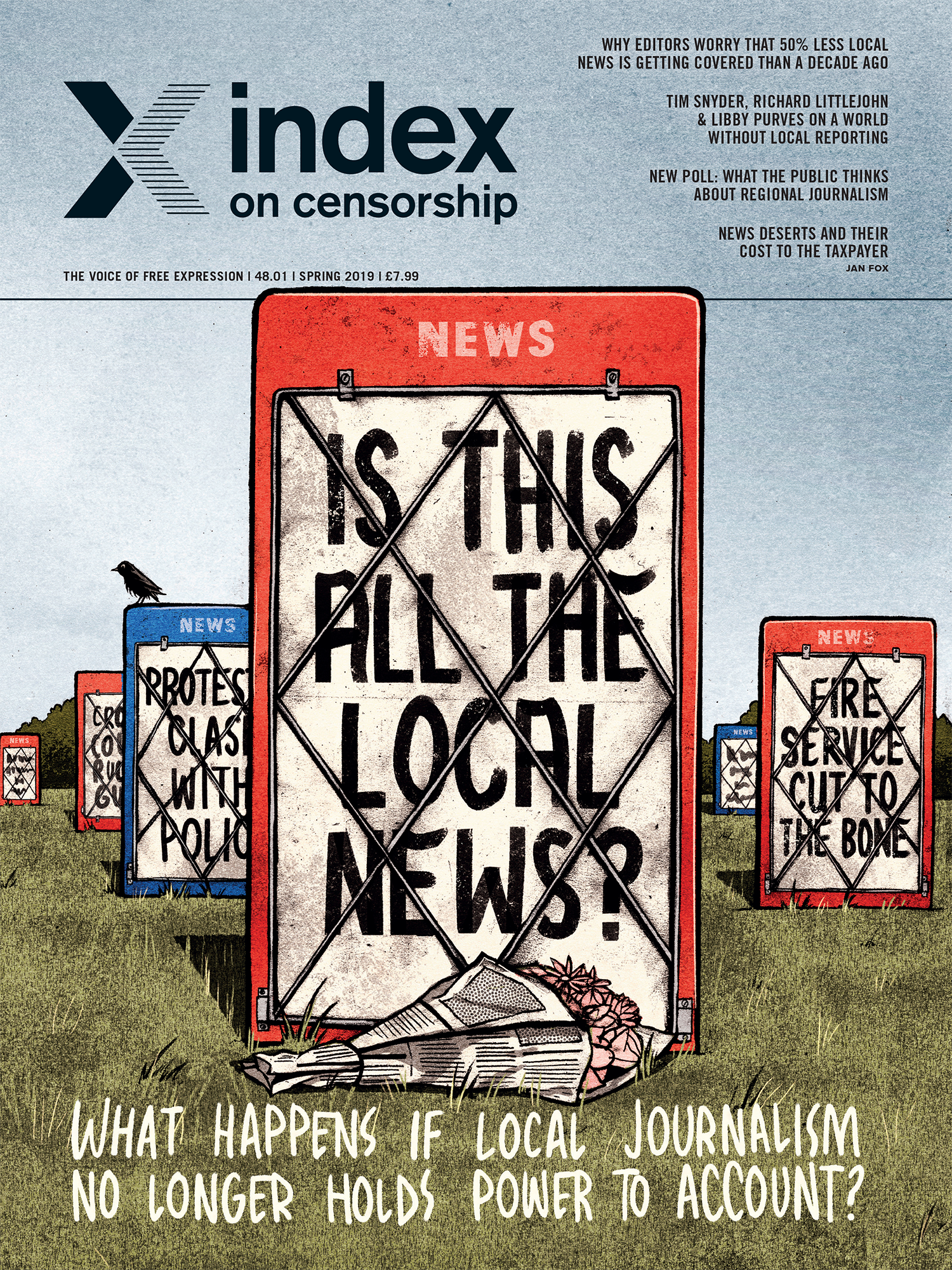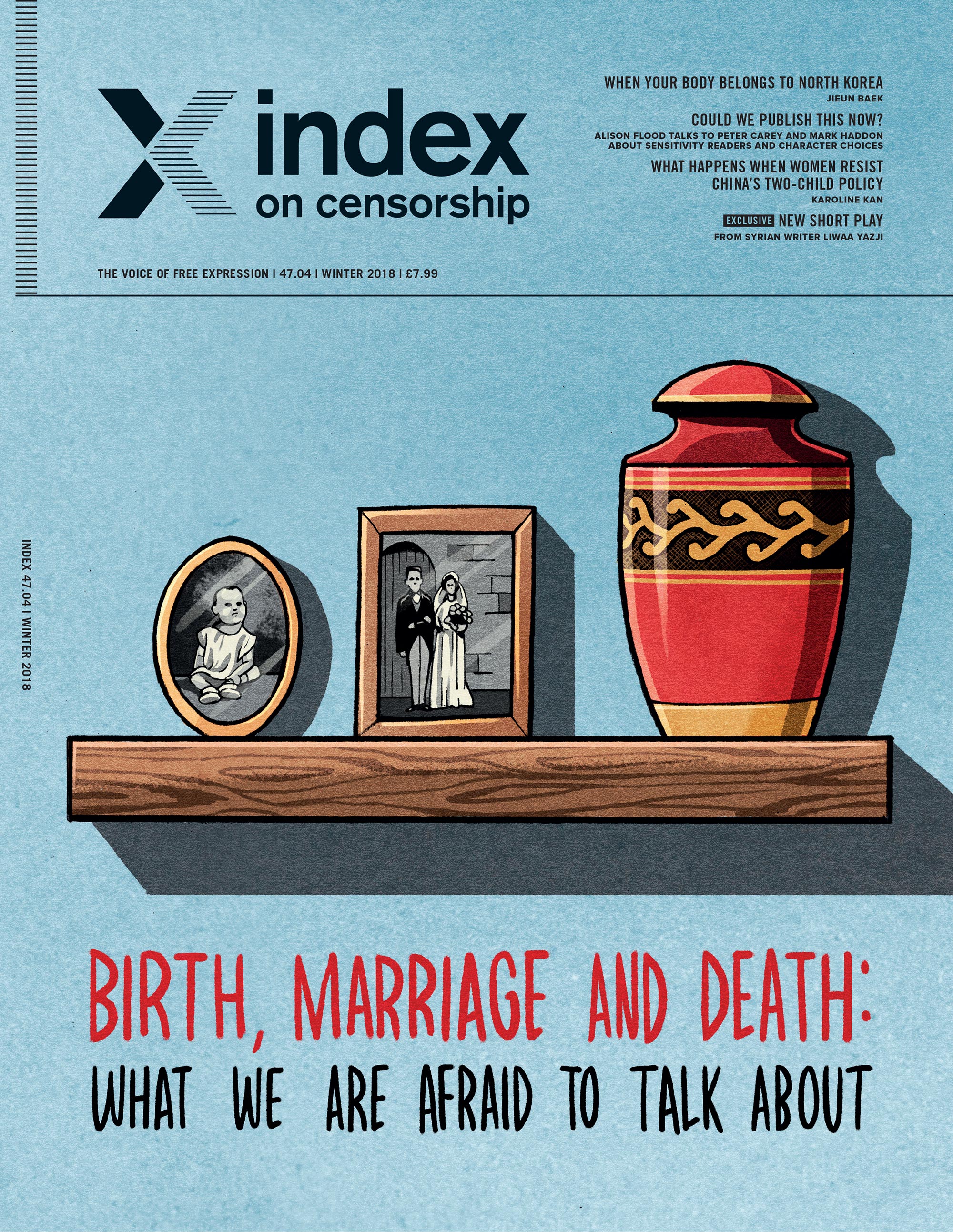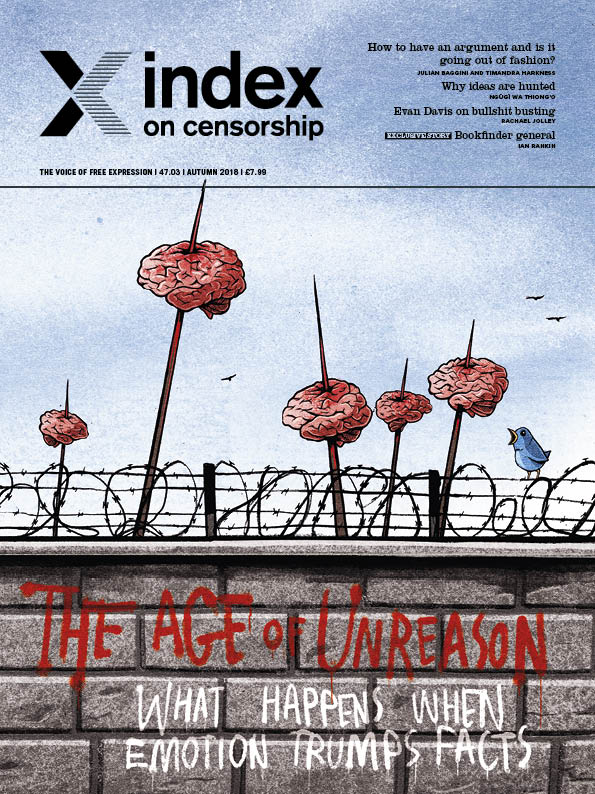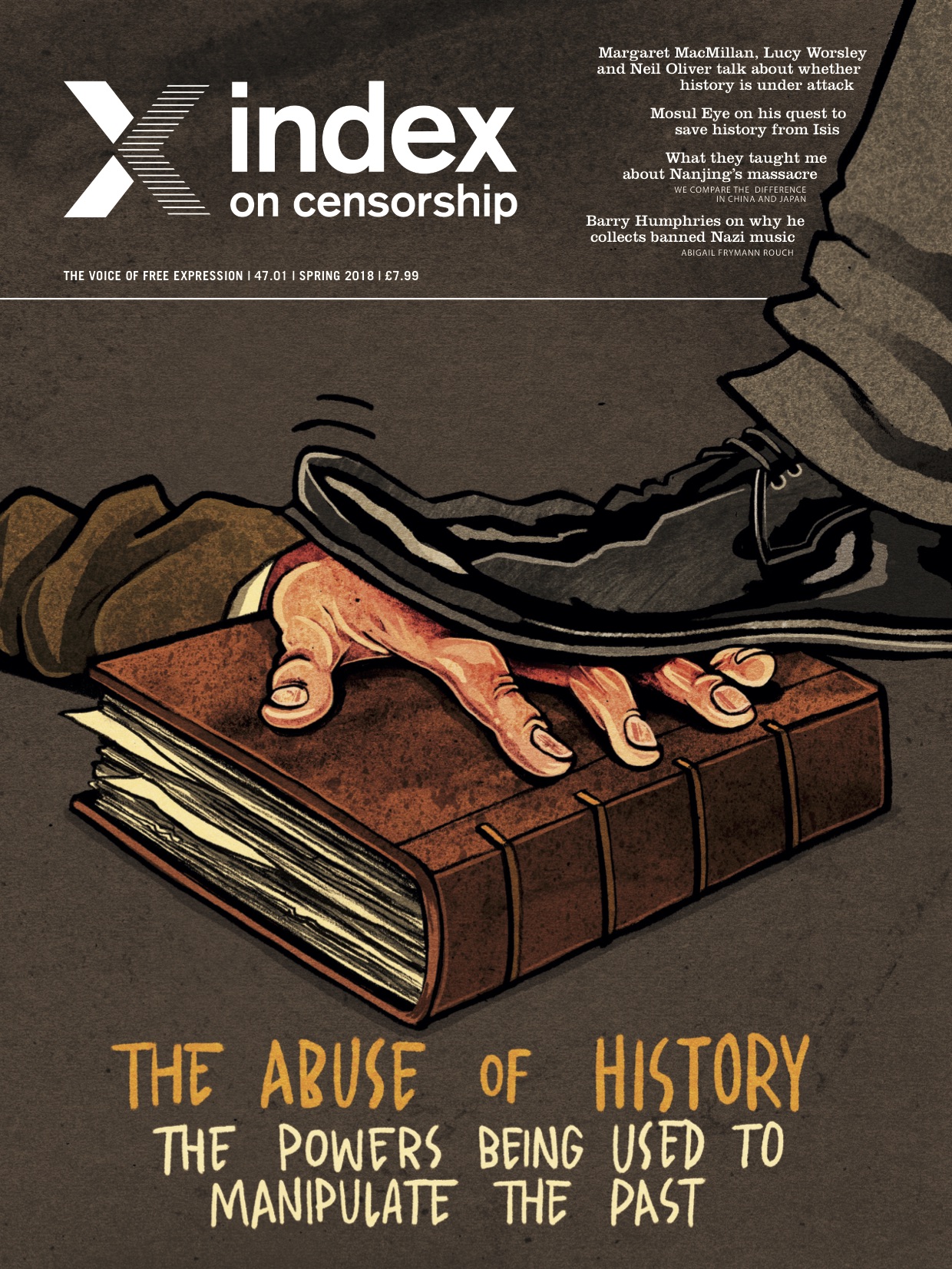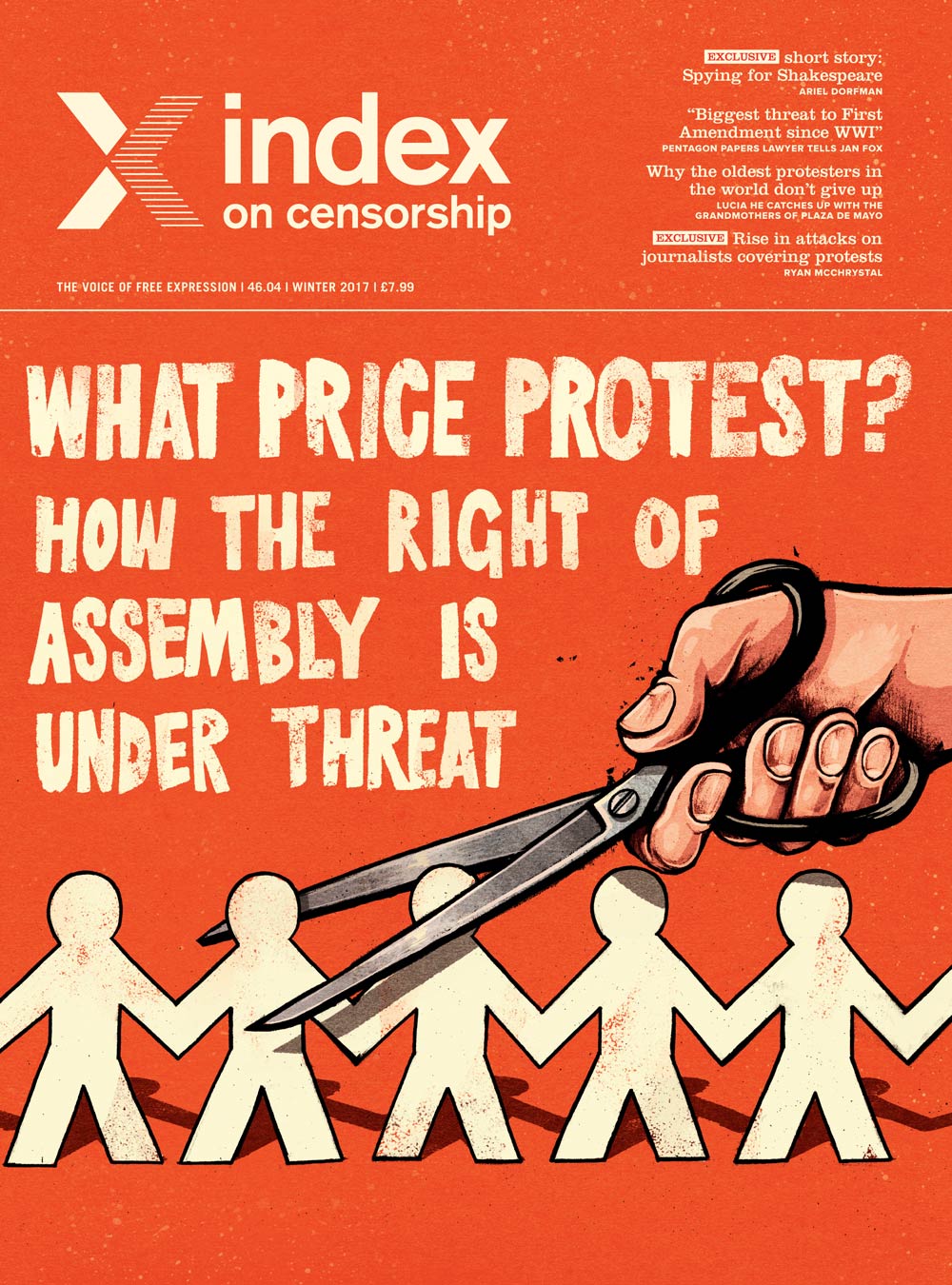What role do we play in our own free speech issues? This is the question we pose in the Index on Censorship spring 2020 magazine. From the journalists who self-censor and the academics who don’t stand up to their arrested colleagues to the average person who shares lots of data with a third party, we are all playing a role in giving away some of our basic rights, information and privacy. Whether we don’t realise we are doing it, we don’t have much other choice or we simply think the trade is worth making, we can be complicit in letting our own rights erode. The ways we are complicit are multiple. Noelle Mateer offers a personal account about living in Beijing under a landlord who embraced the growing trend for video cameras at home. Nathalie Rothschild introduces us to the Swedes who are willingly having microchips inserted under their skin. Is this a great way to keep your own data very, very close to you or a gateway to further data exploitation? Helen Lewis talks about how our fears to enter certain heated discussions might be making vulnerable groups more vulnerable. And Mark Frary tests out the apps to see just how much we are giving away. Elsewhere Stephen Woodman talks to Colombian journalists living in fear of drug cartels. We also publish extracts from a Brazilian documentary that was censored by Jair Bolsonaro, plus a short written exclusively for the magazine by Najwa Bin Shatwan.
